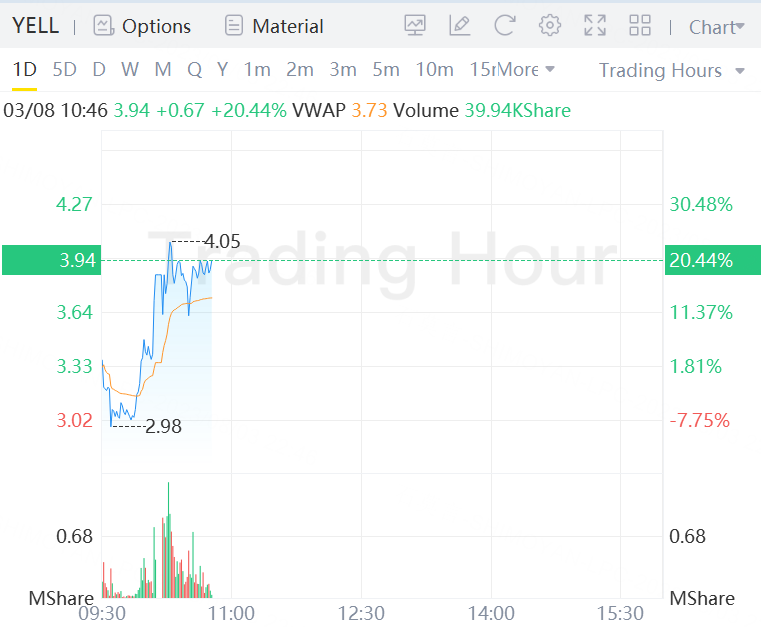Yellow Corporation Jumps over 20% in morning trading on Thursday.
Over the weekend, trucking company Yellow announced that it would halt operations and lay off its entire workforce of 30,000 employees. The move was spurred by a long-standing battle with Teamsters, a labor union focused toward freight drivers and warehouse workers, as well as due to mismanagement.
Despite the bad news, shares of YELL stock are up more than 300% since Monday’s opening bell.
Creditors led by Apollo Global could provide Yellow with fresh cash, Bloomberg reported, citing people familiar.
Apollo is finalizing a deal to lead a debtor-in-possession, or DIP, financing for the imperiled trucking company, Bloomberg reported. Apollo owns most of one of Yellow’s term loans.
Yellow has been teetering on the brink of bankruptcy for weeks, unable to handle its debt load.
On July 30, YELL sent out notices to customers and employees saying it has ceased all operations, and the Teamsters union said the company notified the union it intends to file for bankruptcy.
Customers said at the time disruptions should be limited after many shifted their cargoes to rivals in recent weeks, hastening Yellow's (YELL) demise.
The company has more than $1 billion of debt maturing soon and has been unable to refinance. YELL took a Covid-era rescue loan from the government totaling $700M in 2020.
Is YELL Stock Setting Up for a Short Squeeze?
For anyone familiar with the trucking industry, Yellow’s demise may have been anticipated. It’s competitors are far more profitable, while Yellow was known to undercut shipping prices. Still, that hasn’t stopped shareholders from bidding up the price in recent days, a trend seen with other meme stocks in the past that carried bankruptcy risk. These include Bed Bath & Beyond (OTC:BBBYQ) and Tupperware.
Some shareholders may be buying YELL stock due to its high short interest. As of July 15, YELL carried a short interest of 18.9%, up by 15.3% compared to the last reading of 16.4% on June 30. Generally, a short interest of 10% is perceived as high while a short interest of 20% is perceived as very high.
A stock’s cost to borrow (CTB) fee offers another glimpse into the odds of a short squeeze. The CTB is the fee that short sellers must pay to borrow stock and rises when short seller demand is high. As of yesterday, YELL stock had a CTB fee of just 1.49%, which is in-line with the average CTB fee for a stock of between 0.3% and 3%. The metric tallied in at 1.09% as of July 18, which suggests that short interest has been suppressed since then.
At the end of the day, investing in a company with high bankruptcy risk — regardless of its short interest — is seldom a good idea.

Comments